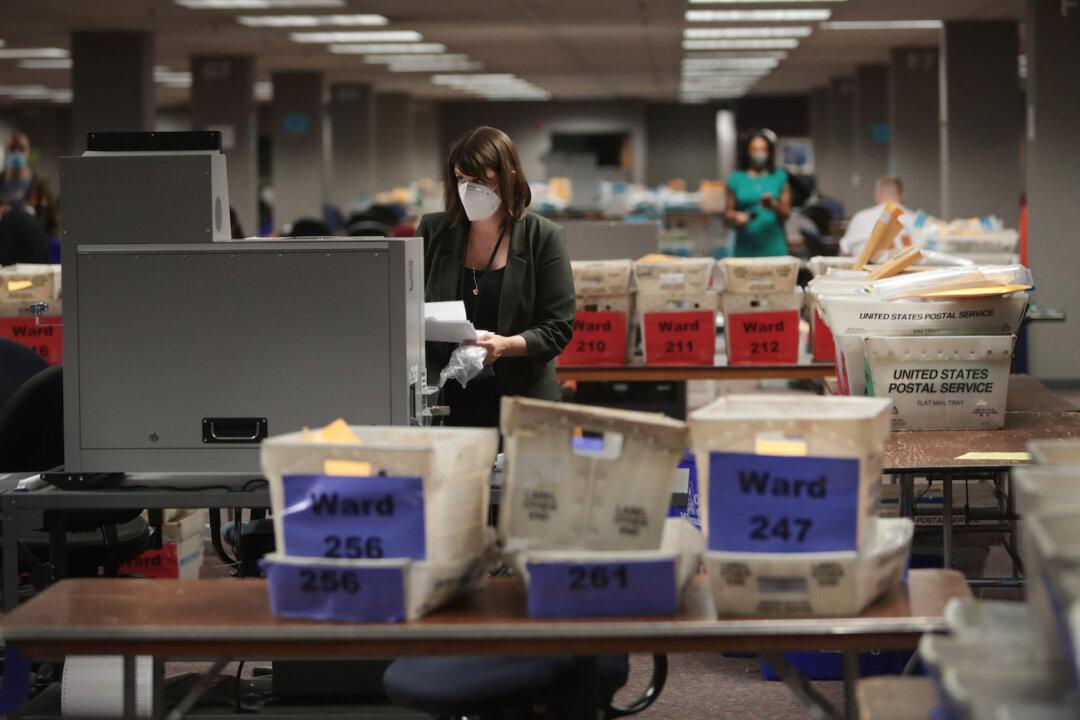A legal battle has been quietly unfolding in the Milwaukee County Circuit Court over a citizen’s request to examine Milwaukee’s voting records from the 2020 presidential election.
In the months following that poll, Peter Bernegger filed four major requests under the Wisconsin Open Records Law to obtain, examine, and copy information—such as absentee ballot applications, envelopes for them, and voter registration applications relevant to or used in the conduct of the 2020 election in the state.





